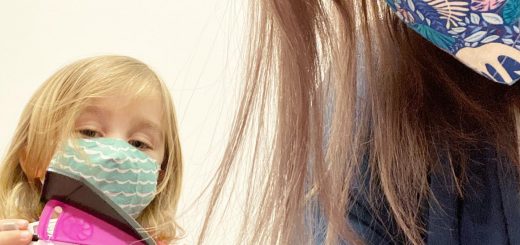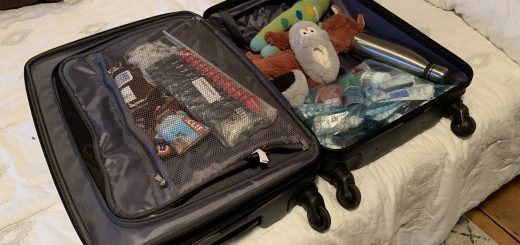Thoughts on offering help
This disease doesn’t just affect Wes; it affects me and Stephanie and everyone we know. A recurring theme during Wes’ ordeal that we’ve heard from so many people we love – locals and our many friends and family who live at distance – is the helplessness of not knowing how to help. I’d like to offer gentle suggestions about how you can help, and importantly how to offer help.
You do the work
The most important guidance I can offer is this: don’t make the person you’re extending help to do the work. This isn’t just about us – it’s universal and we’ve all seen it before. Well intentioned people frequently offer help, but without resources and initiative to accomplish it without the recipient having to intervene. This is rarely malicious, but it can often feel that the effort to receive help is greater than the help given. This kind of situation can quickly lead to hurt feelings and unwelcome conflict, which serves no one.
If you’d like to offer help to anyone in crisis, I’d extend this advice:
- Have concrete ideas of how to help.
- If you don’t have concrete ideas talk to close mutual friends/family, ask professionals (medical, religious, psychiatric, etc.) about what might be helpful. Do the research.
- I’ll address what we need in more detail later, so you can always start there.
- If it’s something we can passively receive then just do it, but only if receiving it doesn’t create its own burdens. Don’t send a box of puppy dogs – it’d cheer us up for a moment, and then shit all over the house for the next decade! :0
- If it’s something we need to be involved with then reach out and propose it. “Hey, I’d really like to do X for you; it’s all lined up, I just wanted to check with you before I make it happen”. Please, don’t be hurt if we decline, and if you are please let us work it out later.
- If we forget a thank you – and we have – please know how grateful we are, and that we are working on being better at recognition. We are in near constant shock or exhaustion and it’s taking us a while.
How you can help us in particular
- Home visits. This is tricky, but a perfect example of the rule above. Please don’t wait for us to reach out to schedule a date, but also recognize that if you do make plans with us that we may need to cancel. Nevertheless, this is one of the most powerful ways you can help because this entire process is isolating for Wes as well as for us. If anyone in your household or whom you’ve been in close contact with is sick, or has been in the past week, we need to know and it’ll probably lead to postponement. You need to be up to date on all vaccines, including flu shots if it’s flu season. We’ll ask you to wash your hands frequently, take your shoes off, and use common sense about things you’re bringing over. Other restrictions may not be obvious, like avoiding mold – we need to avoid any possible source, including potted plants, household mold, etc. Visits at home are great, and we also love to get out, but we’re more limited in where we can go and when. When the weather is nice it’s great to get outside with Wes, for play at the park or a walk on the canal, but we tend to avoid children’s museums, malls, and other places with lots of potential for infection. He also can’t go swimming 🙁
- Hospital visits. We aren’t spending much time in scheduled hospital stays right now, but if we are there for more than a night or two visits are always welcome. We’ll need to put you on the visitor’s list, and there are some basic rules – mostly around timing – but otherwise it’s one of the nicest things you can do. The same rules apply for health and vaccines as above – we can’t be too careful, and at the hospital there are other kids who are even more susceptible.
- Comfort items. Wes probably has more than enough toys for a lifetime, but we won’t say no to more. It does light him up to get a new plane, rocket, race car, or truck – the more annoying, the more he loves it. But what really helps are practical items – comfortable clothes and slippers, blankets, etc. – and things to kill time with, like games suitable for a 3yo, art supplies, and books. During extended hospital stays, meal vouchers for room service, snacks and toys, and more can be ordered through the CHOP giftshop. GrubHub also delivers to the hospital, but they aren’t allowed to come up to the room so it can be tricky to coordinate especially if there’s only one of us staying with Wes (as we cannot leave him alone).
- Meals and snacks. We’ll never say no to a meal, or easy fixings for one, and healthy snacks are always handy, though Wes isn’t exactly easy to provide for right now – his tastes change as he’s a toddler, but he’s also frequently not interested in much but the blandest staples: frozen waffles, rice, noodles, etc., so if you want to get him something to munch on check with us first!
- Cash. I hate to put it out there this bluntly, but this process is financially draining in so many big and small ways. Every dollar helps. We have a GoFundme you can contribute through, or you can always send directly.
- Organize. Raise money for St. Baldricks, for CHOP, or for any other organization working on pediatric cancer. Raise awareness by talking about it with schools, parent groups, or anyone else. Visit pediatric oncology departments and volunteer your time to bring arts, music, games, food, clothing, or any other kind of support and distraction you are equipped to help with. Sometime as simple as bringing coffee for families one morning, or be a kind face to talk to. It all goes a long, long way. And always, fight for every person in the US to have comprehensive, worry-free healthcare worthy of a wealthy nation.
Things that aren’t helpful
This is a hard list to write, but it all needs to be said.
- Information about alternative treatments. We have an amazing care giving team and a clear plan for his treatment, and we’ve likely spent more time than just about anyone you know researching and deciding on his treatment plan, and read everything that hits the news. A half century ago his diagnosis was an almost certain death sentence and it’s only because of an extraordinary effort by medical scientists at St. Judes and elsewhere that he and kids like him have a survival rate of roughly 90% today. We trust our doctors implicitly, and constantly explore the literature and other parents experiences. If you’re an expert in some aspect of therapy that we may find helpful, we’ll reach out.
- Theories about the causes of his cancer. There is little more hurtful, well-intentioned as it is, than articles which proclaim to have identified *the* cause of his devastating illness. We did nothing unusual with Wes; he wasn’t exposed to anything the vast majority of healthy kids aren’t, so these articles generally start with a confusion between causation and correlation and get worse from there. Besides, dwelling on the cause, if indeed there is one to be identified, doesn’t help Wes. Ignoring the almost invariably weak science and the deep feelings of guilt and responsibility articles like this may cause, there’s the practical reality that Wes already has leukemia; if these articles have any useful audience it is people whose kids don’t yet have it. Send it to them.
- Downplaying his condition. Many people have a fairly benign view of leukemia, but it’s only because of the extraordinary, brutal treatment that he has a good chance of survival, and the treatment itself is harder, and more dangerous, than any disease most of us will ever contract. He’s in the midst of an existential crisis, his treatment will continue until 2022, and we likely won’t feel out of the blue until 2029. This is not “the good kind” of cancer.
- Unsafe physical contact. This seems like an obvious one, but more than once perfect strangers have touched Wes and it took all my restraint not to jump down their throats. A minor bug to you could land him in the hospital, or worse. Please, don’t touch without asking first. Disinfect, and if you have even the slightest cough, runny nose, or other symptoms – even if you think its just allergies – please ask.



Well written and all so true. Hey Wes and family…
Thank you for writing this very personal account of pediatric cancer. You touched on everything that we went through in our long journey-8 years-and we are still going to CHOP. You are a very gifted writer and I have read some of your other blog post. Congratulations on the arrival of your new baby girl and I’m happy Wes is feeling O.K. right now. Also, we were especially delighted when the social worker would give us food vouchers/gas cards when we needed them. Katie was our SW reach out to her, she is the BEST! We go to the Burger Center every 3 months for our Oncology appt. now. We know the Doctors and some of the NP, nurses at King of Prussia as we tried to go their instead of CHOP in the city for outpatient when Sara first got Leukemia in Jan. 2010. Sara had so many complications that her treating Doctor said she had to come to the city-the Wood Center- at that time. She had to keep an eye on her! We plan on going to the Beyond cancer celebration in June. Hope your family gets to go. Wes would love it. Maybe we will see you their.